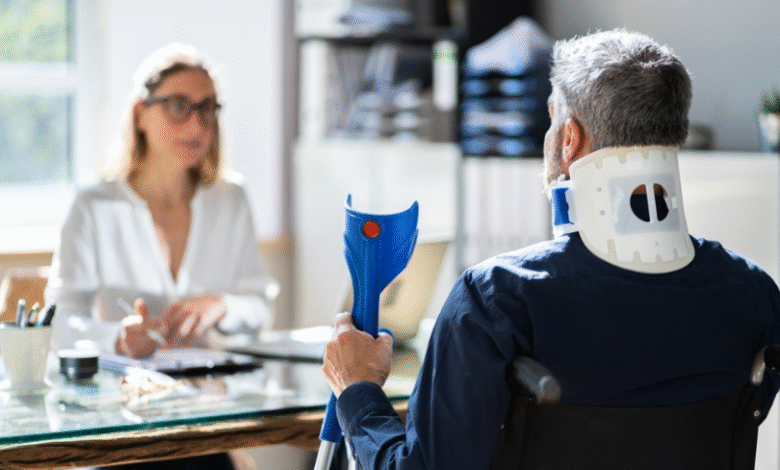When No One Saw It Happen: How to Win a Workers’ Compensation Claim Without Witnesses

Getting hurt on the job is stressful enough, but when no one witnessed the accident, the anxiety can skyrocket. You might worry that your employer or insurance company won’t believe your story. The good news is that you can still prove your claim and get the benefits you deserve. Workers’ compensation lawyers handle these situations every day and know exactly how to help you build a strong case, even when you were the only one there, providing crucial guidance on information on temporary and permanent disability cases to ensure you understand your rights and potential compensation fully.
The Truth About Unwitnessed Workplace Injuries
It might surprise you, but unwitnessed accidents are actually quite common. Many workers perform tasks alone or in isolated areas, from warehouse corners to quiet office spaces. When injuries occur under these conditions, it’s not a deal-breaker for your claim, it just means you’ll need extra documentation and consistency to show what really happened.
Fun fact: Even in offices, most work-related injuries happen around desks, not in warehouses or factories. Tripping over cords or slipping on spilled coffee are among the top causes of reported accidents!
Step One: Report the Incident Right Away
After any workplace injury, timing is everything. Report what happened to your supervisor or HR as soon as possible. Delays can make insurers skeptical, so even if you think the injury is minor, don’t wait. Provide the details, where, when, and how it happened – and make sure the report is filed officially.
A workers’ compensation lawyer can guide you through this step to make sure your report is clear, accurate, and backed by the right evidence from day one.
Step Two: Seek Medical Attention Immediately
Your next move is getting checked out by a medical professional. Not only does this help your recovery, but it also creates an official record of your injuries. Describe exactly how the accident occurred and what part of your body hurts. Medical documentation is one of the strongest forms of evidence when no one saw the event.
If your doctor confirms that the injury is consistent with your account, it helps build credibility for your claim. Workers’ compensation lawyers often work closely with medical experts to strengthen your case with professional testimony, so don’t hesitate to contact Golden State Workers Compensation for expert guidance and support throughout the process.
Step Three: Gather Supporting Evidence
Even without witnesses, you can still collect solid proof. The key is to think beyond people and focus on what else can tell the story.
Here’s what can help:
● Security cameras: Check for video footage near the time and location of the accident.
● Photos: Take pictures of the scene, any equipment involved, and your injuries.
● Work logs: Records showing where you were assigned can help verify your presence.
● Accident reconstruction: In complex cases, lawyers may bring in specialists to analyze how it likely occurred.
Fun fact: Some companies have “smart helmets” or wearable devices that track worker movement, and this data has been used in several cases to prove how an injury happened!
Step Four: Be Consistent With Your Story
Consistency is one of your most powerful tools. Every account you give – to your employer, the doctor, and your lawyer – should line up. If details change too much, insurance adjusters might try to argue that your story doesn’t add up. Keeping notes right after the incident can help you remember key details later.
A workers’ compensation lawyer can prepare you for any interviews or statements to make sure your version of events stays accurate and clear under pressure.
Step Five: Get Expert Legal Help Early
Insurance companies often deny unwitnessed claims, hoping you’ll give up. That’s where experienced workers’ compensation lawyers come in. They know how to collect the right evidence, challenge unfair denials, and present your case persuasively. Having a lawyer can also prevent you from missing deadlines or making small mistakes that cost you big later.
Think of it this way, your lawyer isn’t just your advocate; they’re your teammate in proving the truth. Many firms even offer free consultations and only get paid if you win your case.
See also: Regression Testing in Automation: Key Insights
What Happens If Your Claim Is Denied
Don’t panic if your claim gets denied initially. Many valid cases are rejected on the first try, especially when no witnesses are involved. Your lawyer can file an appeal, bring in expert witnesses, or use medical and circumstantial evidence to overturn the decision. Persistence pays off in these situations, and legal professionals know exactly how to navigate the process.
An unwitnessed workplace injury might feel like a no-win situation, but it isn’t. With prompt reporting, medical documentation, solid evidence, and the guidance of an experienced workers’ compensation lawyer, you can absolutely prove your case and receive the benefits you’re entitled to.
Fun fact: In some states, workers have up to 30 days to report an injury, but waiting even a week can make a big difference in how your claim is viewed.
So don’t go it alone. Reach out to a trusted workers’ compensation lawyer who knows how to fight for your rights, even when no one else saw what happened. The right help can turn doubt into a winning claim – and peace of mind that you’re protected.




